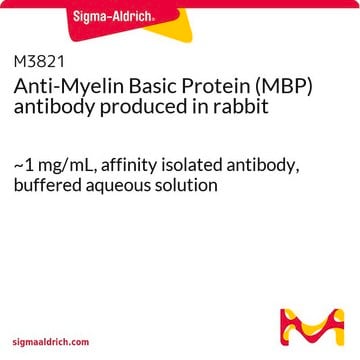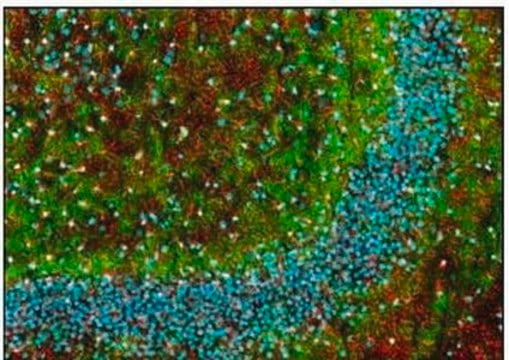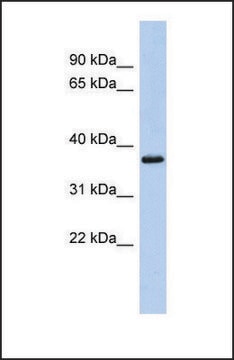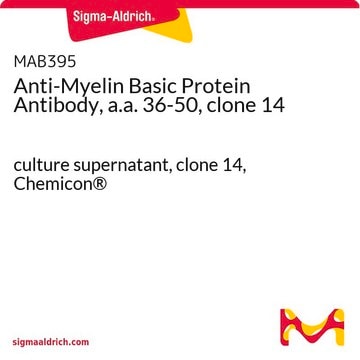ABN912
Anti-Myelin Basic Protein
from rabbit, purified by affinity chromatography
Synonym(s):
MBP
About This Item
Recommended Products
biological source
rabbit
antibody form
affinity isolated antibody
antibody product type
primary antibodies
clone
polyclonal
purified by
affinity chromatography
species reactivity
human, rat
species reactivity (predicted by homology)
guinea pig (based on 100% sequence homology)
packaging
antibody small pack of 25 μg
technique(s)
immunohistochemistry: suitable (paraffin)
western blot: suitable
UniProt accession no.
target post-translational modification
unmodified
Gene Information
human ... MBP(4155)
rat ... Mbp(24547)
General description
Specificity
Immunogen
Application
Neuroscience
Quality
Western Blotting Analysis: 1 µg/mL of this antibody detected Myelin Basic Protein in human cerebellum tissue lysate.
Target description
Physical form
Storage and Stability
Other Notes
Disclaimer
Not finding the right product?
Try our Product Selector Tool.
Certificates of Analysis (COA)
Search for Certificates of Analysis (COA) by entering the products Lot/Batch Number. Lot and Batch Numbers can be found on a product’s label following the words ‘Lot’ or ‘Batch’.
Already Own This Product?
Find documentation for the products that you have recently purchased in the Document Library.
Our team of scientists has experience in all areas of research including Life Science, Material Science, Chemical Synthesis, Chromatography, Analytical and many others.
Contact Technical Service








